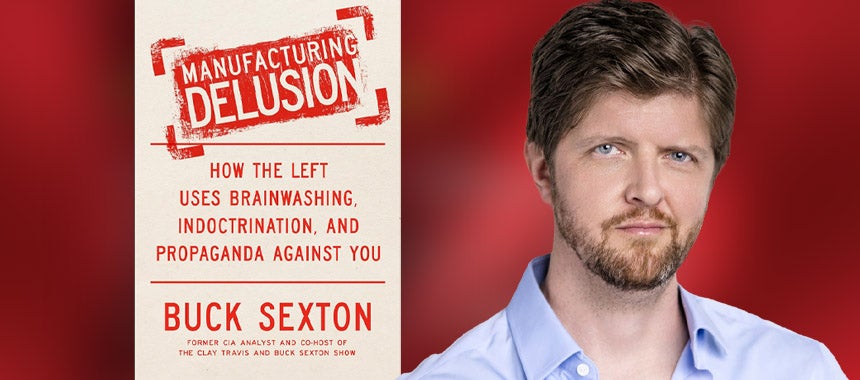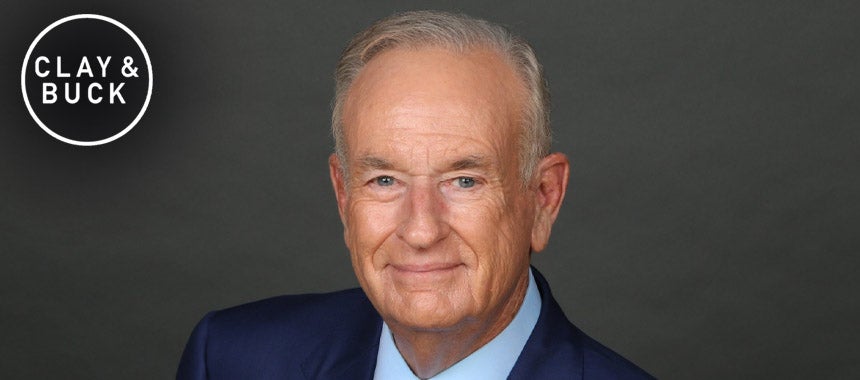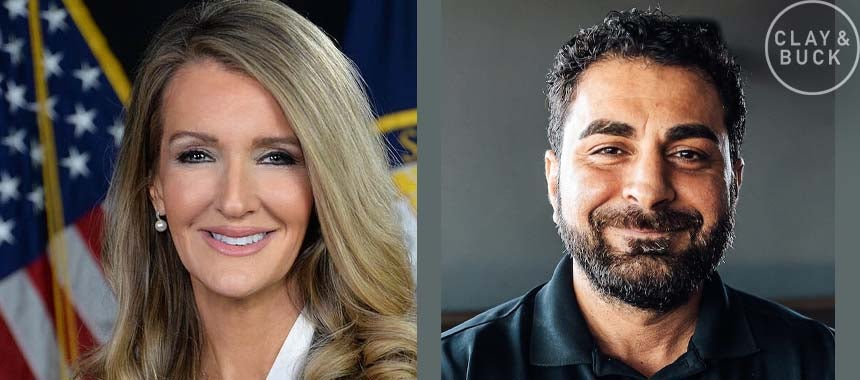Ukraine Crisis Gets Uglier and More Dangerous
9 Mar 2022
BUCK: This is on the Daily Mail right now, for example — Putin’s hospital atrocity. I mean, you are seeing the awfulness of war and people are becoming more emotionally involved in the desire to do something in Ukraine. What does this mean if Putin starts to lose? Here is a nuclear weapons author Joe Cirincione saying if Putin starts losing, the risk grows.
CIRINCIONE: That’s the danger, ironically. If he is losing the war, the nuclear risks grow. The stakes for him become very high and he may feel like a gambler at the table who’s losing his hand. He’s just gonna bet the house — and Russian doctrine does allow for something called “escalate to deescalate,” to use a nuclear weapon first to try to back off the West if they’re losing.
“It is absolutely insane. It is dangerous. I’m afraid something is going to go horribly wrong,” says nuclear nonproliferation expert Joseph Cirincione on Russia attacking a Ukrainian nuclear power plant. pic.twitter.com/DBigd4X7ue
— Brianna Keilar (@brikeilarcnn) March 4, 2022
BUCK: He’s right about that. That is Russian military doctrine that they will use a nuke as essentially a back-off maneuver if they think they’re about to lose dramatically, Clay. We’ve gone quite a ways from just a couple of weeks ago where the country seemed very much in favor of nonintervention where now over 70% say they want a no-fly zone.
CLAY: I think this is utterly the danger. The analogy we’ve used and I think it’s a good one on this show is the guy who loses the fistfight and maybe Putin is losing the fistfight right now and isn’t happy with the result and the embarrassment that comes with that loss and decides to bring in a knife or a gun or brings in a bunch of more guys to try to exact revenge over what has happened. I also think we should mention, Buck, the situation in Poland.
We talked about that live on the show yesterday, and I think diagnosed what ultimately the State Department ended up coming to that psalm conclusion, which is — and to reiterate for people out there who may have missed this, the idea was Poland was going to give airplanes, jets, fighter jets, to Ukraine. But they were going to do it by using a base in Germany to make the transfer.
And initially they said, “Look, if they try to do it in Poland then the Russians may well attack those jets before they get airborne,” and so Poland said, “Hey, we’ll put those jets in Germany.” But what you then create is the possibility of Vladimir Putin attacking Germany to try to keep those jets from going into Ukraine and making it to Ukraine airspace. And so what you’re pointing to, Buck, 70% of people may favor a no-fly zone but they’re probably thinking about the no-fly zone in the context of what happened in Iraq, where we had total air superiority and we weren’t in danger of creating World War III.
 I thought Marco Rubio said it well when he said (summarized), “Look, a no-fly zone basically creates the entire situation for World War III to exist,” and if that were to end up happening, what we’re doing is sort of a slow walk up to potentially an escalating situation where the United States gets officially drawn in. And that’s the debate we were having yesterday, Buck. At what point does aid become not aid anymore but an actual tacit action to put you in as a combatant? To me, fighter planes feels like it’s pretty close.
I thought Marco Rubio said it well when he said (summarized), “Look, a no-fly zone basically creates the entire situation for World War III to exist,” and if that were to end up happening, what we’re doing is sort of a slow walk up to potentially an escalating situation where the United States gets officially drawn in. And that’s the debate we were having yesterday, Buck. At what point does aid become not aid anymore but an actual tacit action to put you in as a combatant? To me, fighter planes feels like it’s pretty close.
BUCK: I think it was last week, Clay, when I said here, “I understand we’re rooting for Ukraine because they’re the underdogs. They’ve been invaded, and there’s all these reports about how strong the resistance has been. The Russian war machine is vicious, it is fierce, and it is gaining ground. They are currently, if you look at it on a map, carving up areas of Ukraine and establishing total control on the ground.”
Now, it’s not a majority of Ukraine, but there’s a whole region in the north, a region in the east, and a region in the south where they’re effectively creating a de facto annexation for the Russian Federation. That’s happening right now. They’re also increasing the shelling, they’re increasing the destructiveness that they’re willing to engage in at this phase, and when we’re talking about a no-fly zone to the point you just made a second ago, it is…
When you put American planes in the sky and you say, “We will shoot down Russian planes,” now it just turns into who’s gonna fire first, because there’s no way Russian planes and American planes are in no-fly zone and they’re just flying past each other, nothing happens, right? We know that. So here’s a former ambassador was actually on MSNBC saying you shouldn’t call it just a no-fly zone. Here’s what you should call it.
“Let’s just get rid of this euphemism ‘no-fly zone.’ Let’s call it for what it is — it’s war,” former U.S. Ambassador to Russia Michael McFaul urged on @MSNBC. pic.twitter.com/t4cCMxroaF
— Mediaite (@Mediaite) March 8, 2022
BUCK: That was former U.S. ambassador to Russia for a long time, McFaul — who I’ll say, is a leftist and something of a loon on things like Trump issues, but on this point, on this issue, Clay? I think what he’s saying is true. I think what he’s saying is right.
CLAY: And also, Buck, it doesn’t even require a conscious decision and intent to shoot down a plane. You know this as well as anybody out there listening to would also. The amount of potential errors that could come into play when you’ve got all of these jets flying around over Ukraine, even if there is an attempt to avoid conflict, it virtually is impossible to have that conflict avoidance occur. So, yeah, I think that’s really where the rubber meets the road.
We have to decide what is our limit in terms of engagement as it pertains to Russia and Ukraine. And so far, to me — and I don’t know if you agree with this, Buck — but putting jets, giving jets to Ukrainians and allowing them to take off and pilot those jets feels awfully close to me — and I don’t know if you agree with me, but I’m trying to think about it from a Russian, Vladimir Putin’s perspective. It’s one thing if you’re giving guns. It’s another thing if you’re giving even the anti-tank apparatus and everything else.
Theoretically, Ukraine could find ways to buy that on the black market. You can’t buy a jet on the black market, right? Like, you can’t just randomly end up with one of these high-powered jets. So there is, to me, a standard where giving armaments goes beyond just, “Hey, here’s some guns, here are some anti-tank missiles, here’s some Javelin material — and, oh, by the way, here’s 20 fighter jets.” The fighter jets feels to me, Buck, like a pretty substantial acceleration, if I’m looking at this from a Russia perspective.
BUCK: Well, if they are taking off from bases outside Ukraine —
CLAY: Yes which they have to be.
BUCK: They initially would be.
CLAY: Yes.
BUCK: I don’t think they’re gonna draw them… They’re not gonna put them on trucks and take this across the border by land. So they’re gonna fly them in… But if they’re flying strikes from outside of Ukrainian territory, the Russians are gonna see that as an act. That is an act of war. We need to start using these terms. That’s an act of war. If you’re allowing someone to fly planes to do strikes against you, you’re gonna look at that as they’re a belligerent now. They’re in the conflict.
 CLAY: Even to your point, you have to start that way, right? Because they’re not gonna put these things on trains or on big trucks and try to somehow cross the border with the plane on the ground. Like, you have to have them take off with Ukrainian pilots from another country to fly in. That feels to me like, if I’m Russia, a declaration of war in some ways. It’s different than bringing guns or bringing these other materials across the border, to me. Do you feel the same way, that that feels like a fairly substantial acceleration?
CLAY: Even to your point, you have to start that way, right? Because they’re not gonna put these things on trains or on big trucks and try to somehow cross the border with the plane on the ground. Like, you have to have them take off with Ukrainian pilots from another country to fly in. That feels to me like, if I’m Russia, a declaration of war in some ways. It’s different than bringing guns or bringing these other materials across the border, to me. Do you feel the same way, that that feels like a fairly substantial acceleration?
BUCK: It’s an escalation for sure, which is why I think the U.S. response to it has been, “Whoa, hold on a second! We didn’t coordinate.” Yeah. So there’s clearly something different. Plus, we were already selling armaments. The Chinese… There are people have been selling armaments to Russia. We’re not about to say we’re at war with them.
But there’s something more specific and something right, you know, next to the battlefield, so to speak, about allowing the MiGs to be transferred to Ukraine that clearly is raising concerns, raising tensions. And I’m amazed, Clay, at the people say — and I’ve seen this now — “Putin’s not gonna fire nukes if we start shooting his planes out of the sky.”
CLAY: Yeah.
BUCK: Really?
CLAY: It’s a big, bold gamble to just be saying that.
BUCK: Think what we’re talking about. I’m not saying, “Oh, the ruble might tank 15% if we start shooting planes out of the sky.” It’s, “He won’t fire nuclear weapons,” folks. This is what… We’re having this discussion right now. We’ve just come out of a two-year pandemic, and we’re closer in America, at least, to the prospect of a nuclear exchange than, what, any time since the Cuban Missile Crisis, probably? Let’s be realistic. When was the last time we were really sitting around saying, “This feels like it could be wrong and there could be nukes at any moment”? It’s been decades, at a minimum.
CLAY: Certainly thirty-five years at least, back to the eighties.
BUCK: Look at how quickly we moved along. I’m kind of stunned, Clay, by the polling. People say, “Buck, maybe you shouldn’t believe the polling.” A lot of people, a lot of people on the right are saying, “No, we need to do this no-fly zone for Ukraine.” Really? All of a sudden, a no-fly zone? We’re two weeks into this. And, by the way, what have I been saying?
 It’s gonna get ugly. Forget about the Ghost of Kiev and the beauty queen with her airsoft rifle and all this initial propaganda about the glorious resistance. This is going to turn into hell. It’s going to look awful. We’re going to see some of it. It’s going to be playing on the emotions of everyone who’s not in the conflict, and you have to think about this stuff rationally and in calculated fashion.
It’s gonna get ugly. Forget about the Ghost of Kiev and the beauty queen with her airsoft rifle and all this initial propaganda about the glorious resistance. This is going to turn into hell. It’s going to look awful. We’re going to see some of it. It’s going to be playing on the emotions of everyone who’s not in the conflict, and you have to think about this stuff rationally and in calculated fashion.
Because miscalculation here, Clay, that’s the kind of stuff that keeps people up at night. I don’t know what else to say. How much higher can the stakes possibly be than what we’re talking about right now with these decisions about U.S. involvement in Ukraine, which I’m sitting here saying, “No, no, no.”
CLAY: Here’s a question that I have for you, Buck, and you may know the answer and I don’t know, and I haven’t even seen it covered very much. What kind of protection, missile shield do we have in the event that Putin decided to launch a nuke? Let’s talk… To what extent do we have the knowledge technologically to be able to try to keep one of these things from landing. That used to be talked about a lot in the 1980s and the early nineties when the Cold War was still kind of in conscious thought. I don’t remember having that conversation in 30 years.
BUCK: I’ll pose to you this way, and then we’ll bring in somebody who understands the combat on the ground very well, how this stuff goes, Jack Carr, former Navy SEAL. He’s a sniper, saw combat overseas, he’ll be joining us. Best-selling author too. You guys, I’m sure, read his books. He’ll be joining us in just a few minutes. Clay, I will just say this.
The government that just made us mask up for two years unnecessarily is not a government that I sleep well at night hoping would be able to shoot a nuclear weapon out of the sky in time. I’m gonna tell you that right now. I don’t know. I’ve been out of the system. I’ve been out of the national security side for a while. So I don’t even know what the current capabilities are, unfortunately, ’cause they’re very, very sensitive and secret. But I don’t sleep well at night thinking that.
Recent Stories

Manufacturing Delusion Is On Sale Now!
Buck's book is one of the most popular on the charts. Get it now.

Bill O'Reilly Previews the State of the Union
Uncle Bill on the SOTU and the current political climate.

Kelly Loeffler and the Owner of Jimmy's Famous Seafood, John Minadakis, Join C&B
Jimmy's Famous Seafood became a viral sensation after smacking down anti-American leftists.

Hockey State of the Union Drama Explodes, Clay Parties with Team USA
Clay and Buck cover all the angles of the Team USA Hockey controversy.

VIP Video: The Changing Face of American Physical Education
Buck brings up a game called "steal the bacon." Clay brings on the wrath of Big PE.





